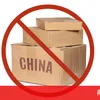Indian tech startups cheer decision to ban Chinese apps; say ‘digital swadeshi revolution’ finally here
For Indian tech startups, the government’s move to ban Chinese apps is the revolution they had been waiting for, and see this as the boost they need to grow.

The Indian government on Monday announced a ban on 59 Chinese apps "...which are prejudicial to sovereignty and integrity of India, defence of India, security of state and public order."
Indian tech startups on Tuesday lauded the government of India’s decision to ban as many as 59 Chinese apps, including popular ones such as TikTok, Helo, and WeChat, saying the move will help boost the Indian digital ecosystem, and make the country more ‘aatmanirbhar’, or self-sufficient, in line with Prime Minister Narendra Modi’s latest call-to-action.
The decision to ban the apps was prompted by recent border skirmishes between the two countries, and, more importantly, after several complaints and reports that the apps had been stealing user data and surreptitiously sending it to servers outside India.
The ban could result in a loss of millions of dollars for the Chinese companies, various unnamed sources told media publications in India. But their loss is India’s gain, say homegrown tech startups that view this as an opportunity to gain traction and emerge as better alternatives to these popular Chinese apps.

Naveen Tewari, Founder, InMobi
“This is the digital aatmanirbhar moment that most Indians have been rooting for,” says Naveen Tewari, Founder and CEO, of InMobi Group which owns Glance, a fast-growing mobile content platform.
last year acquired ,a short video platform, which gave Glance access to more than 42 million users, and to vernacular content creators.
“As the number one top video app on the Google Play Store, Roposo is very well positioned to lead this movement. Roposo will continue to build on the trust and love that 55 million Indian users have placed in us,” adds Naveen.

Chingari is a short video-sharing app
, another short video-sharing app that is poised to become one of the top networking sites in India, also lauded the decision.
“This is a very good step taken by the Govt of India and the IT Ministry of India. For a very long time, TikTok has been spying on users and sending back the data to china. We are happy that this step has been finally taken,” says Sumit Ghosh, Co-founder and Chief Product Officer of Chingari, which already boasts over three million downloads.
Revolution for ‘swadeshi’ apps
Sumit also urged all the users of TikTok to try Chingari, which he adds "is a 100 percent India grown app, and made for the passionate Indians."
And Indians everywhere appear to be heeding his advice.
Chingari, which already boasts over three million downloads, is witnessing 100,000 downloads every hour and 1 million video views every 30 minutes, Aditya Kothari, VP, Strategy, Chingari tells YourStory.
Aditya adds,
"This is a massive opportunity for India to build the largest tech eco-system in the world, and for home-grown apps to innovate and take off."
Like Chingari, , a vernacular lifestyle app, has witnessed a surge in organic activity, with almost a million downloads since the ban.

Trell Founders: From left - Pulkit Agarwal, Prashant Sachan, Arun Lodhi, Bimal Kartheek Rebba
Pulkit Agrawal, Co-founder of Trell, also welcomed the government's 'bold decision' to ban Chinese mobile apps, adding the move takes "...us closer to a new ‘Aatmanirbhar’ India" and will "....change the trajectory and create a whole new revolution for our swadeshi apps.”
“With this new move, startups like ours will play a great role in boosting the Indian economy and help build an Independent tech and startup ecosystem. We are all geared up and ready to be a part of the Digital India revolution and enable our creators to earn a sustainable income while they focus their efforts to make in India,” he adds.
As tech startups like Trell, Chingari, and Roposo ready to take advantage of this opportunity and lead the Digital India revolution, investors too are taking stock of this opportunity for new homegrown innovations.
Prayank Swaroop, investor and partner at Accel, on Twitter put out a call for Indian startups building platforms to replace the banned Chinese apps. He tweeted, "If you are building apps that replace these (Chinese) apps in India, you can mail me at prayank@accel.com. Happy to chat."
Must strengthen data privacy and protection laws
Ever since news about the ban broke late Monday, Indian tech startups and business leaders have also called on the Indian government to strengthen its data privacy laws.
Nasscom President Debjani Ghosh says there's "....no better time than now for Indian start ups to raise their innovation game! Also the perfect time for government and industry to amp up the 'build for India and scale globally' movement with focus on innovation, policy, funding, trust, and security."
Vivek Chandy, Joint Managing Partner at J Sagar Associates, also echoed Debjani's view on the need to ramp up policy and security laws. He says,
“In addition to this move, the government should look at strengthening India’s data privacy and protection laws."
“The access to, and storage and usage of, data of Indian users by several of these (Chinese) apps was apparently a concern for some time already. While the protection of that data may be the ostensible reason for this move, its impact on the companies concerned will remain to be seen,” Vivek adds.
TikTok, in an official statement, insisted it did not send any user information to any foreign governments, including China.
Edited by Tenzin Pema




![[Roundup] Reactions of Indian business leaders and tech startups to India's ban on Chinese apps](https://images.yourstory.com/cs/2/a0bad530ce5d11e9a3fb4360e4b9139b/Collage-1593512802217.png?fm=png&auto=format&h=100&w=100&crop=entropy&fit=crop)




